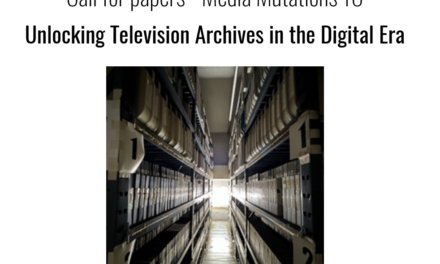“Another world is not only possible; she is on her way. On a quiet day, I can hear her breathing.”
Arundhati Roy
We are happy to announce the organisation of a one day online conference for the Cinematic Precarity Research Network, to be held Online (Oxford Brookes University, University of Exeter) to be held online on Thursday 14th of December 2023.
Aim of this conference is to bring together academics working upon the issue of precarity and its relationship with “the moving image”. Definitions of precarity are multiple and, at times, conflicting. Many of them share the intention to capture the dynamics and social transformations associated with the neoliberal turn, and with the mechanisms of gig-economy.
However, this term has assumed the most various significance and seems to capture a broader social and affective predicament. Ecological crises point at a precarisation of existence and of “the human” as such, whereas the sense of individualisation and fragmentation produced by an economy based on debt/credit connect with new worrying authoritarian trends. A sense of political impotence is often associated with these social forces that enact and reproduce processes of marginalisation, which, in turn, favours always more violent mechanisms of exploitation. However, mapping the various faces and spaces of precarity is also an occasion to, at once, recognise, the multiplicity of a vulnerable world and of its inhabitants, while, at the same time, highlighting new modes of political subjectivation.
This call for papers, therefore, is intended to take into account the polysemic and always renewing uses of the notion of precarity, while also describing strategies to address the deadlocks it defines. Precarity can refer to issues and problems of representation, analysing the ways in which subjectivities on the screen are configured and how their definitions intersect on the line of class, race, gender, ability/disability. Precarity may consider new problems in film and media production and distribution, helping in effectively assessing new tensions between mainstream and ‘niche’ screen culture and/or strategies to challenge such divisions. Understanding these mechanisms is also connected with the possibility of tracing genealogies of precarity in the multiple histories of cinema and audiovisual productions examining hegemonic and counter-hegemonic trends in their developments. In this sense, the discussion and critical evaluation of political and social strategies aiming to address (or, on the contrary, standardise) the precarious status of the industry are also of great interest. On a more philosophical level, the precarious status of moving images in contemporary artistic and affective infrastructure is also a theme to be addressed and carefully assessed.
The hopeful tension inscribed in this call for papers is that studying and analysing the many faces of precarity (from the climate crisis to new forms of exploitation and marginalisation) is not limited to sophisticated identification of the cracks and contradictions defining our age; the work of analysis that we humbly hope to carry out together is to use the power of moving images in order to ignite the critical and passionate imagination of a new world responding to the alleged inevitability of the current state of affairs.
We welcome abstracts (max 300 words and bios of max 150 words/expected length of 20 minutes) dealing with this list of topics:
- Precarity as a Strategy: The Neoliberal Governance
- Ecological Precarity and the Precarious State of the Human; Eco-Fears and Necropolitics
- Precarious Subjectivities and Spaces on Screen at the Intersection
of Class, Gender, Race, Sexuality, Ability/Disability - Precarious Citizenship: Border as Method
- Precarity and the Digital Economy; Digital Exhaustion
- Precarity, Class, and Identity (and its problems?)
- Discourses on Precarity, Social Activism, and New Unionism
- Precarity in Production, Circulation, and Participation in Media Culture
- Political and Productive Strategies Responding/Resisting Dynamics of
Precarisation - Genealogies of Precarity Beyond the Limits of Contemporaneity
- Precarious Narratives and Counter-Subjectivation
- The Precarious Status of Moving Images; New Forms of Circulation and Spectatorship
- Precarity and the Affective Labour in Relation to Transfeminist Thought
- Ways to Address Precarity in Terms of Public Policies
Deadline for abstracts 15th of September 2023. Send abstracts and bio at this email address: cinematicprecaritynet@gmail.com (organised by Dr Maria Elena Alampi and Dr Francesco Sticchi)
Keynote Speakers: Prof. Guy Standing
Bibliographical References
Burucúa, C. Sitnisky, C. (2018) “Introduction: Forms of the Precarious in the Cinemas of the Americas” In The Precarious in the Cinema of Americas. Burucúa, C. Sitnisky, C. (eds.). New York: Palgrave Macmillan: pp. 1-15.
Ciccarelli, R. (2021), Labour Power: Virtual and Actual in Digital Production, translated by E. C. Gainsforth. Cham: Springer Nature.
Federici, S. (2009) 2009. Caliban and the Witch: Women, the Body and Primitive Accumulation, 3rd ed. New York: Autonomedia
Fisher, M. (2009) Capitalist Realism: Is There No Alternative?. London: Zer0 Books.
Fraser, N. (2022) Cannibal Capitalism: How Our System is Devouring Democracy, Care, and the Planet-and What We Can Do about it. London: Verso.
Gago V. (2017) Neoliberalism from Below: Popular Pragmatics and Baroque Economies, trans. Mason-Deese L. London: Duke University Press.
Guattari, F. (1995) Chaosmosis: An Ethico-Aesthetic Paradigm. trans. P. Bayns and J. Pefanis. Bloomington: Indiana University Press.
Jaffe, S. (2021) Work Won’t Love You Back: How Devotion to Our Jobs Keeps Us Exploited, Exhausted, and Alone. New York: Bold Type Books.
Kirsten, G. (2022) “Studying the Cinema of Precarity” In Precarity in European Film, E. Cuter, Kirsten G. Prenzel, H. (eds.). Berlin: De Gruyter: pp. 1-30.
Lorey, I. (2015) State of Insecurity: Government of the Precarious fore. by Butler, J. London: Verso.
Marx, K. (1993) Grundrisse: Foundations of the Critique of Political Economy, trans. and fore. by M. Nicolaus. London: Penguin Books.
Mbembe, A. (2019) Necropolitics, translation by S. Corcoran. London: Duke University Press.
Mezzadra, S. Nielson, B. (2019) The Politics of Operations: Excavating Contemporary Capitalism. London: Duke University Press.
Morini, C. (2010) Per amore o per forza. Femminilizzazione del lavoro e biopolitiche del lavoro fore. by Judith Revel. Ombre Corte: Verona.
O’Shaughnessy, M. (2022) Looking Beyond Neoliberalism: French and Francophone
Belgian Cinema and the Crisis. Edinburgh: Edinburgh University press.
Piketty, T. (2014) Capital in the Twenty-First Century trans. By A. Goldhammer. London: Harvard University Press.
Robinson, C. J. (2021) Black Marxism: The Making of the Black Radical Tradition fore. By R. D. G. Kelley and preface by C. J. Robinson, D. Sojoyner, and T. Willoughby-Herard. London: Penguin.
Sassen, S. (2014) Expulsions: Brutality and Complexity in the Global Economy. London: Harvard University Press.
Standing, G. (2011) The Precariat: The New Dangerous Class. London: Bloomsbury.
Stimilli, E. (2019) Debt and Guilt: A Political Philosophy. London: Bloomsbury.





